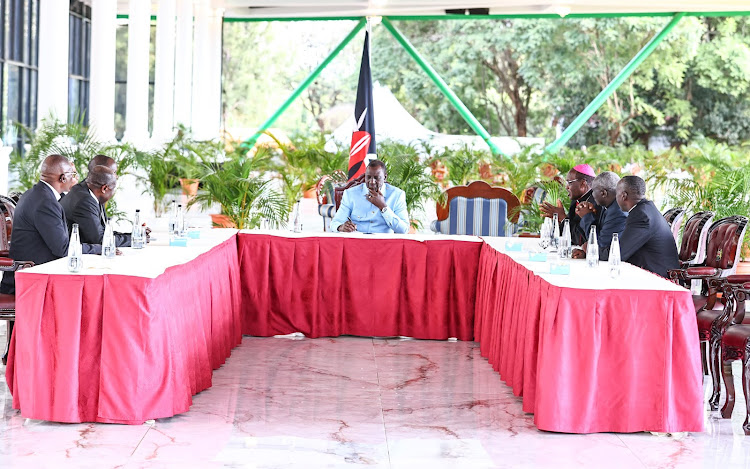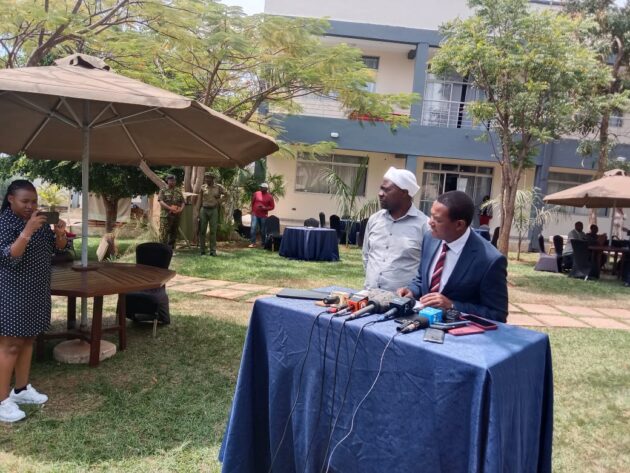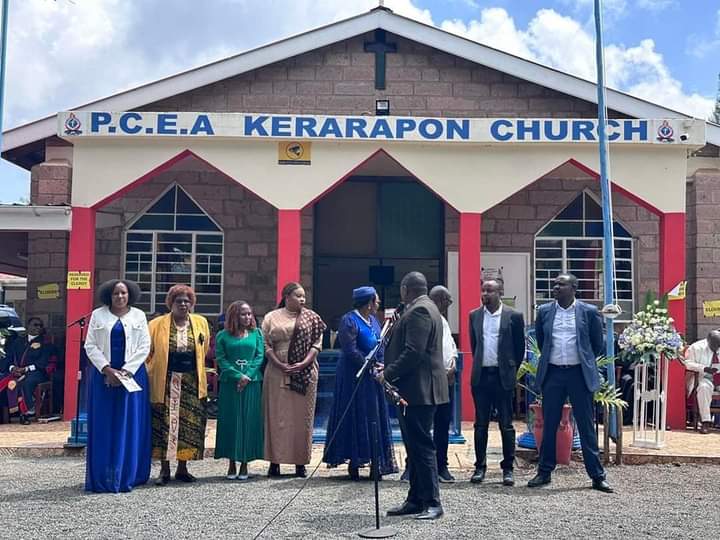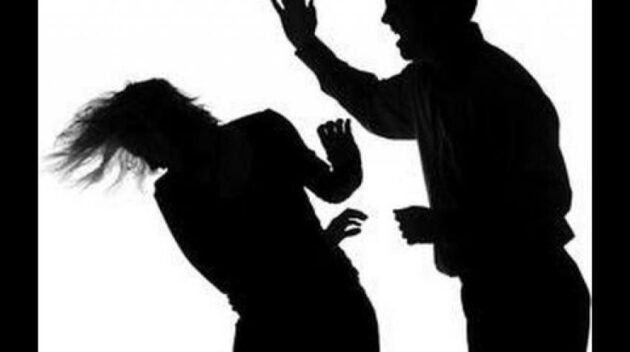President William Ruto on Friday held talks with the leadership of the Kenya Conference of Catholic Bishops KCCB at State House, Nairobi.
The meeting came just a day after the KCCB issued a statement titled ‘cry of the oppressed’ lamenting about “gradual intent to undermine the role of the church as a stakeholder in society”.
In the statement signed by KCCB Chair Archbishop Maurice Makumba (Kisumu), the men of cloth enumerated several issues they wanted the government to address.
Key among them, they said, was their evident exclusion in welfare initiatives in Education and Health which the Catholic Church has been actively involved in since missionaries first arrived in the country.
“Unfortunately, we as the Catholic Church are noticing changing dynamics of the relationship between ourselves and the government,” the clergy said.
“We are concerned about the deliberate intent to reduce and undermine the role of the Catholic Church, and indeed all Faiths as safeguards of morality in society. We especially decry this subversion in the fields of Education and Health.”
On Education, they took issue with two bills: the Basic Education Bill 2024 and the Universities (Amendment) Bill, 2024.
They said the Basic Education Bill 2024 seeks to dilute and reduce the role of the church in educational institutions by wrestling the management and role of churches in the schools.
“We therefore decry and reject the systemic scheme to undermine and weaken our management role as founders of the Catholic-sponsored schools,” they said.
The Universities (Amendment) Bill, 2024, they said, grants the Education Cabinet Secretary unilateral power of dissolution and merger of private universities without reference to their owners.
“It is surprising that instead of focusing on improving the situation in public universities where the situation is dire, the government wishes to control and interfere with faith-based universities.”
On Health, they urged for urgent stakeholder intervention to end the ongoing doctors’ strike where many have so far died and the sick continue to suffer as a result of the current standoff.
“This is worsened by the inability of faith-based hospitals to fully respond to the crisis, as they have been crippled by the NHIF debt. In the final result, the person who pays dearly with their lives is the poor Kenyan,” the bishops said.
They also touched on the high cost of living and high taxation and called for transparency in the utilisation of the already collected taxes and for both levels of government to embrace public participation while formulating tax regimes.
“That includes listening to the voice of the churches and other faiths who have been clear on what may be most beneficial at this time,” the bishops said.
Those present during the State House meeting included Archbishops Maurice Makumba (Kisumu), Antony Muheria (Nyeri), Martin Kivuva (Mombasa), Philip Anyolo (Nairobi) and Bishops Dominic Kimengich (Eldoret), Michael Odiwa (Homa Bay) and KCCB General Secretary Rev Jude James Waweru.
On April 6, President William Ruto assured the church that the government will respect their views and embrace any criticism.
In his speech read on his behalf by National Assembly Speaker Moses Wetang’ula during the episcopal ordination of two catholic bishops in Nairobi, Ruto said the voice of the church is the voice of God.
“Kenyans and its leadership from the top will respect your criticism and your counsel so that where we err we can rectify and change,” Ruto said.











